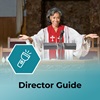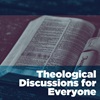Bible References:
1 Timothy 4:1-5: "1 The Spirit clearly says that in later times some will abandon the faith and follow deceiving spirits and things taught by demons. 2 Such teachings come through hypocritical liars, whose consciences have been seared as with a hot iron. 3 They forbid people to marry and order them to abstain from certain foods, which God created to be received with thanksgiving by those who believe and who know the truth. 4 For everything God created is good, and nothing is to be rejected if it is received with thanksgiving, 5 because it is consecrated by the word of God and prayer."
2 Timothy 3:1-9: "1 But mark this: There will be terrible times in the last days. 2 People will be lovers of themselves, lovers of money, boastful, proud, abusive, disobedient to their parents, ungrateful, unholy, 3 without love, unforgiving, slanderous, without self-control, brutal, not lovers of the good, 4 treacherous, rash, conceited, lovers of pleasure rather than lovers of God— 5having a form of godliness but denying its power. Have nothing to do with them.
6 They are the kind who worm their way into homes and gain control over weak-willed women, who are loaded down with sins and are swayed by all kinds of evil desires, 7 always learning but never able to acknowledge the truth. 8 Just as Jannes and Jambres opposed Moses, so also these men oppose the truth—men of depraved minds, who, as far as the faith is concerned, are rejected. 9 But they will not get very far because, as in the case of those men, their folly will be clear to everyone.
2 Peter 3:3-4: 3 First of all, you must understand that in the last days scoffers will come, scoffing and following their own evil desires. 4 They will say, "Where is this 'coming' he promised? Ever since our fathers died, everything goes on as it has since the beginning of creation."
Purpose: To help your group think more deeply about God and his truth.
Activity: Read the verses listed above (2 Timothy 3:1-9; 1 Timothy 4:1-5; and 2 Peter 3:3-4). On a whiteboard or piece of poster-board, make two columns. Label one "Similarities" and the other "Differences." As the passages are read, ask the group to call out the similarities between them. Then ask them to call out the differences.
When finished, ask two questions to help the group process what they experience from these verses: 1) What stood out to you when the three Scripture passages were read together? 2) What stood out to you when you compared/contrasted these three passages?









